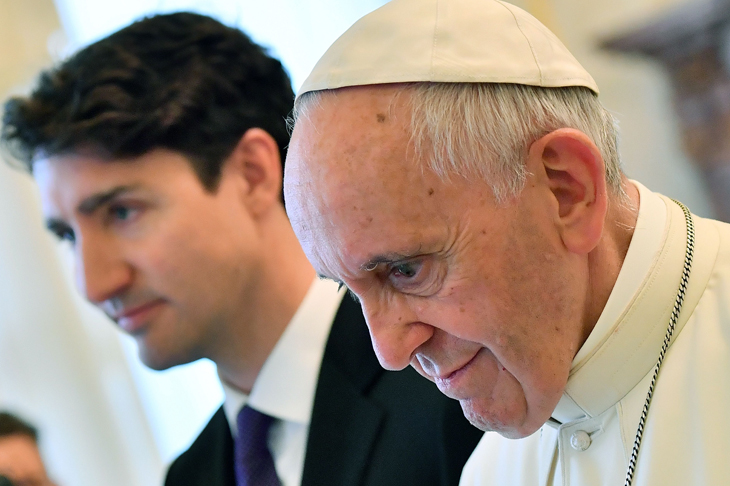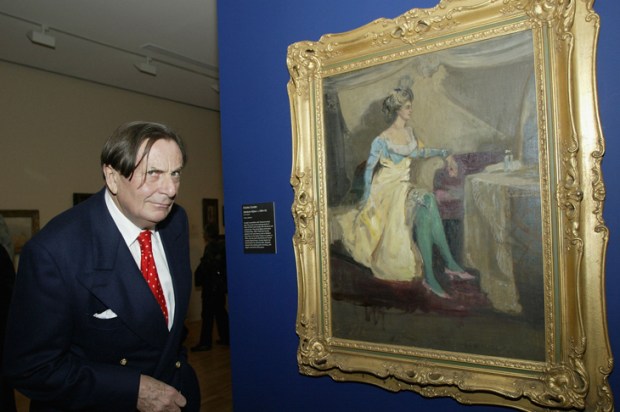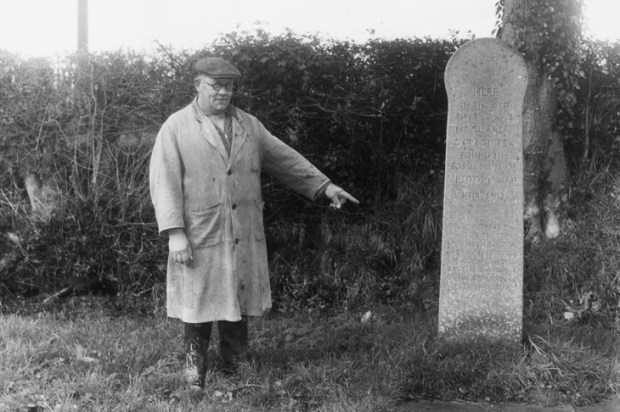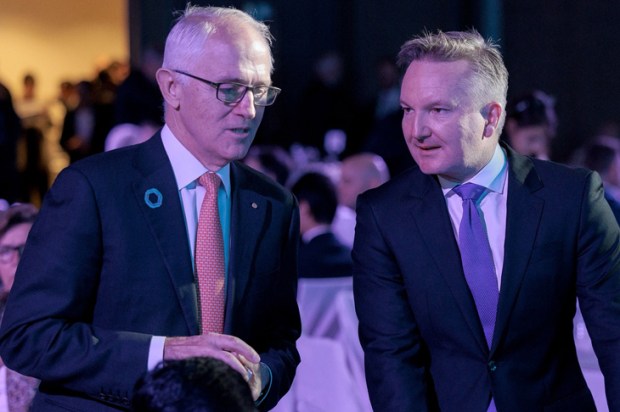Readers will be well aware of Canadian Prime Minister Justin Trudeau’s de-facto war on ordinary citizens in the name of woke. Earlier this year it was truckers and their families (i.e., the working class his party is meant to represent) who were his targets, accusing them of among other things, racism and homophobia, which of course, was completely untrue and irrelevant to the issue of draconian vaccine mandates taking away their livelihoods, and he froze their bank accounts along the way simply for trying to make that point.
Now he has set his sights on Canadian farmers with a fertiliser tariff and emissions reduction plan, all in the name of satisfying climate zealotry and, as far as the tariff is concerned, ostensibly punishing Russia for its war in Ukraine. This is another straw man since, as noted in these pages, instead of punishing Russia, the tariff has severely hurt Canadian farmers trying to grow food – and it has been imposed without the government making any serious attempt to find alternative sources of nitrogen. This is on top of rising fuel costs and Trudeau’s nutty 30 per cent emissions reduction targets which have hit the agricultural sector the hardest.
Well, last month Trudeau had a partner in talking nonsense. Pope Francis made a ‘pilgrimage’ to Canada to apologise for the Catholic Church’s treatment of the country’s indigenous people. In a lengthy speech, naturally, he expressed ‘deep shame and sorrow’ for the part played by Church members in government-funded residential school abuses. While he was at it, Papa Bergoglio, as is his wont, joined in indigenous rituals, one in particular known as a ‘smudging’ ritual.
As reported by LifeSite news, it is a ritual to ‘smudge to the four directions’, using sweetgrass and animal feathers to waft smoke around the room. However, whether Bergoglio knows it or not, and since he is the pope, he should have known, the ritual apes the use of Catholic sacraments and sacramentals, and ‘is a clear act of pagan superstition’, according to the Catholic news website.
The ritual is intended as ‘a ritual of purification’ in which ‘mother earth’ is prayed to as a kind of pantheistic deity, which is reminiscent of Pope Francis’ veneration of the pagan Pachamama idol at the Vatican in 2019.
In his long speech, the Pope condemned ‘ideological colonisation’, and lamented a past ‘colonialist mentality’ which he said ‘disregarded the concrete life of people and imposed certain predetermined cultural modes’.
Now, no one is denying that abuse took place in Church-run institutions, but, as we know based on the experience in Australia, this was not limited to the Catholic Church, but took place in institutions run by various denominations and, indeed, by the various states, where, from all accounts, the abuse suffered was more widespread and worse.
What is more, Papa Bergoglio conveniently forgets the many Canadian martyrs (mainly from the same religious order as he, the Jesuits) who gave their lives for Canada and their faith.
One such figure is that of Saint Isaac Jogues, the French Jesuit missionary who was martyred in 1646 at the age of 39. Jogues, along with Saint Jean de Brébeuf and six other martyred missionaries, all Jesuit priests or laypeople associated with them, are known as the Canadian martyrs and were canonised by Pope Pius XI in 1930.
Born in Orléans, the city made famous by its maid, Saint Joan of Arc, Jogues entered the Jesuit Order in 1624. Following his ordination in Rouen in 1636, Jogues was sent to Canada and undertook missionary work with the Huron Indians in Ontario.
As historian Martin Scott wrote, the missionaries accommodated themselves to the customs and food of the Indians as much as possible to show them that they intended to share their life. In 1641 Jogues began a mission with the Ojibwa tribe. The following year, he and several companions and Huron converts were captured by the Iroquois Indians near Montreal. The Iroquois were a war-like tribe who in the 1600s had managed to subdue the Indians from the St. Lawrence River to Tennessee and controlled the lucrative fur trade in their territory and boat travel on the Great Lakes. They brought Jogues and his companions to Ossernenon, where they were terribly beaten, and Jogues’s fellow missionary, René Goupil, was killed. Jogues’s captivity lasted about thirteen months, during which his hands were mutilated and he lost several fingers, among other tortures.
However, during this time, Jogues saved the life of a pregnant woman who had fallen into a deep, fast-flowing creek during the winter and he baptised the Iroquois man who had freed him from a wooden torture device.
After being ransomed by the Dutch, Jogues managed to escape down the Hudson River and returned to France in 1643. However, Jogues was eager to return to his missionary work and returned to Canada two years later to help establish peace between the French and the Mohawk and Iroquois Indians to ensure a safe passage for trade and travel. Unfortunately, the Europeans brought smallpox and measles with them to which the Indians had no resistance. After another outbreak, along with crop failure, the Mohawks accused Jogues and his fellow missionaries of witchcraft, killing him with a tomahawk on 16 October 1646.
As can be seen from the life of Saint Isaac Jogues, the foremost desire of the Canadian missionaries was to convert souls for God, and if necessary, to die for the people they served. They worked tirelessly to give Canadian Indians a better life; not to strip them of their identity but to further their culture and lives by making them truly Christian. There is nothing in their lives that should be apologised for, or forgotten, since they did not get any mentions during Pope Francis’ visit to Canada.
Before he issues his next papal bull, perhaps these words attributed to the founder of the Jesuits, Saint Ignatius Loyola, would be of great assistance to Pope Francis: ‘Speak little, listen much’.
Got something to add? Join the discussion and comment below.
Get 10 issues for just $10
Subscribe to The Spectator Australia today for the next 10 magazine issues, plus full online access, for just $10.
You might disagree with half of it, but you’ll enjoy reading all of it. Try your first month for free, then just $2 a week for the remainder of your first year.














Comments
Don't miss out
Join the conversation with other Spectator Australia readers. Subscribe to leave a comment.
SUBSCRIBEAlready a subscriber? Log in